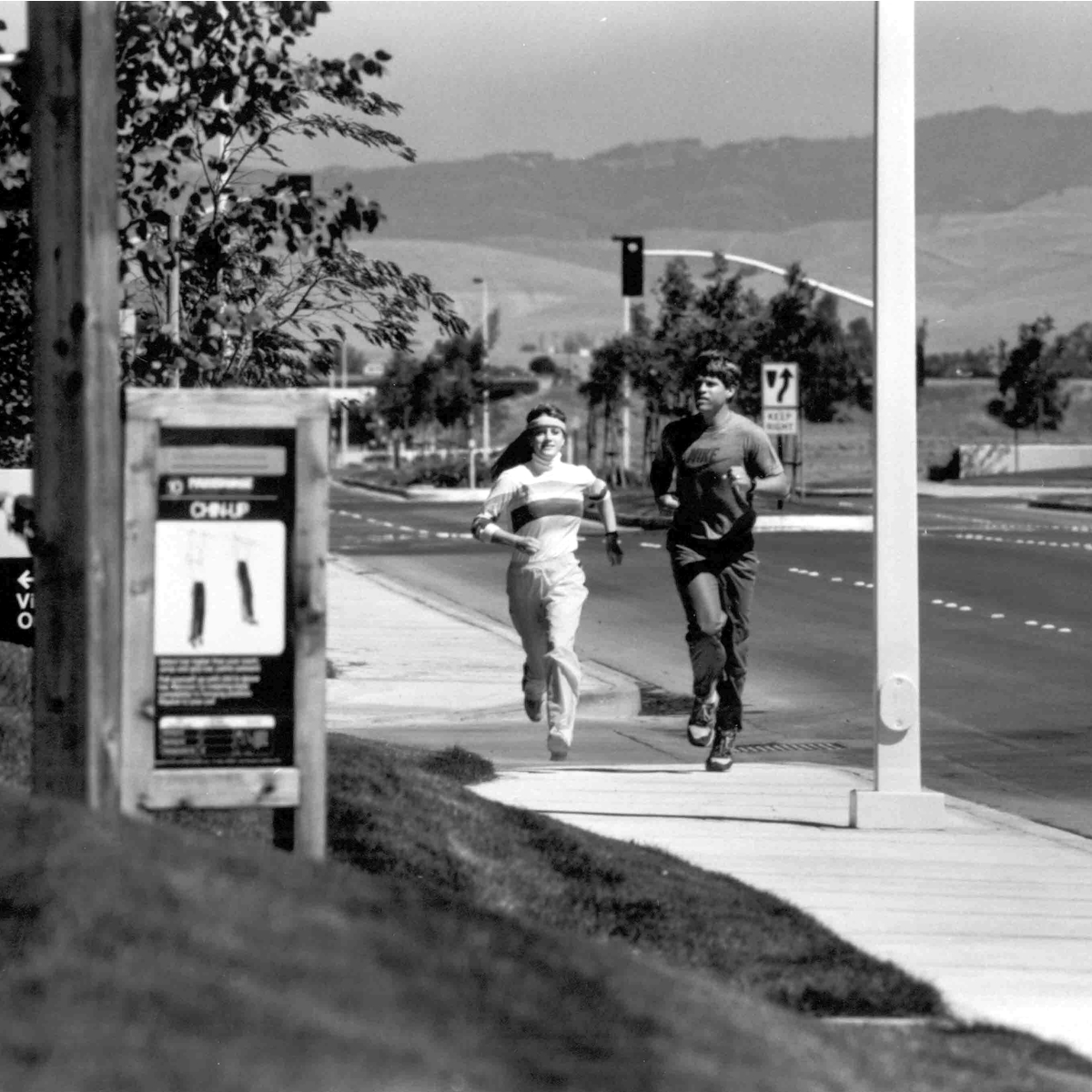Soccer City on the Run
Soccer City on the Run

The third installment of the popular Soccer City Run will hit the streets of Hacienda Business Park, Sunday, March 9 at 10:00 am. Race officials are expecting as many as 1,200 participants in this year's event, which benefits the Pleasanton Youth Soccer Association. Co-sponsors of the third annual Soccer City Run are the developers of Hacienda Business Park (The Prudential Insurance Co. of America and Callahan-Pentz Properties) and Curtiss Pontiac, Cadillac and GMC in Tracy.
The Soccer City Run is ideal for first-time racers and for those seasoned runners going for a personal best. The course at Hacienda is flat, smooth, wide and well-marked. And with race time at 10:00 am, the weather is likely to be cool and windless - perfect conditions for running your best.
To encourage all runners and all running abilities, the Soccer City Run features two distances from which to choose: 5K (3.1 miles) and 10K (6.2 miles). In addition, several age divisions are set up within both the male and females ranks. There's even a division for those confined to a wheelchair.
Soccer City is a great opportunity to put your fitness program to the test, or to use the race as a goal to work toward. You still have four weeks to get in shape.
You don't have to have the Olympian endurance of a Joan Benoit or an Alberto Salazar to finish comfortably, but you do have to train and run sensibly. Here are a few tips that should get you across the finish line with energy to spare.
How many miles should I run in training? Here's a simple formula that seems to work for most people. Your distance potential is generally three times farther than your average daily training run. (By "daily" I mean five days a week, not seven.) For example, if you run 12 miles during the course of a week, divide that figure by five to find your average daily run: 2.4 miles. Now, multiply 2.4 miles by three: 7.2 miles. This means that a person running a little less than 2 ½ miles a day, five days a week, should be able to comfortably run as far as 7.2 miles. Mind you, that same person probably could run farther, if sufficiently motivated, but I'm speaking of a distance that's comfortable and won't bind your legs in steel stiff knots the morning after.
What if you don't run five days a week? The same formula still works. Let's say you run five miles on Saturday, three miles on Sunday and two miles on Wednesday, for a total of 10 miles. Ten divided by five (days) equals two (miles). Two (miles) multiplied by three equals six (miles). You'll finish a 10K.
To finish the 10K distance comfortably, it is recommended that you run at least 10 to 12 miles a week for four to six weeks prior to race day. The 5K distance would require a five to six mile weekly pace.
Should I get new shoes or special racing shoes for the race? Run in the same shoes in which you train. Don't fool around with new shoes prior to a race. They might cause blisters or biomechanical adjustments your body will have to adapt to. Buy the new shoes after the race.
Should I continue to train right up to race day? Most people like to taper down their training prior to a race, so their legs are "fresh" on race day. Certainly don't push yourself too hard within 72 hours of the race. The day or two before, you might want to jog your average daily distance, but at about 2/3 speed. Remember: you can't substitute several weeks of sensible training for a flurry of exhausting runs the week before the race.
Will I embarrass myself if I'm too slow, come in last, or don't finish at all? Absolutely not! Runners share a special camaraderie and they always pull for each other. Any effort is respected and appreciated. In all the races I've been to, I've yet to hear a sneer directed at a "slow" runner.
Besides, depending on your age, weight and free time available for training, maybe an hour and 15 minutes for a 10K is a great time for you. If it is, then be proud of it. Other runners will be proud of you for giving it your best. ln fact, the loudest cheers at the finish line are usually aimed not at those long-limbed gazelles who run at a five-minute-per-mile pace, but at those stragglers who finish by determination and with great effort.
For more information on the Soccer City Run, turn to page 6 where you'll find an application to race, or call Soccer City Run Director Mike Milton at 846-5512 (evenings).
To see a reproduction of the original article and edition of Pleasanton Pathways, visit: February 10, 1986 Pathways.




